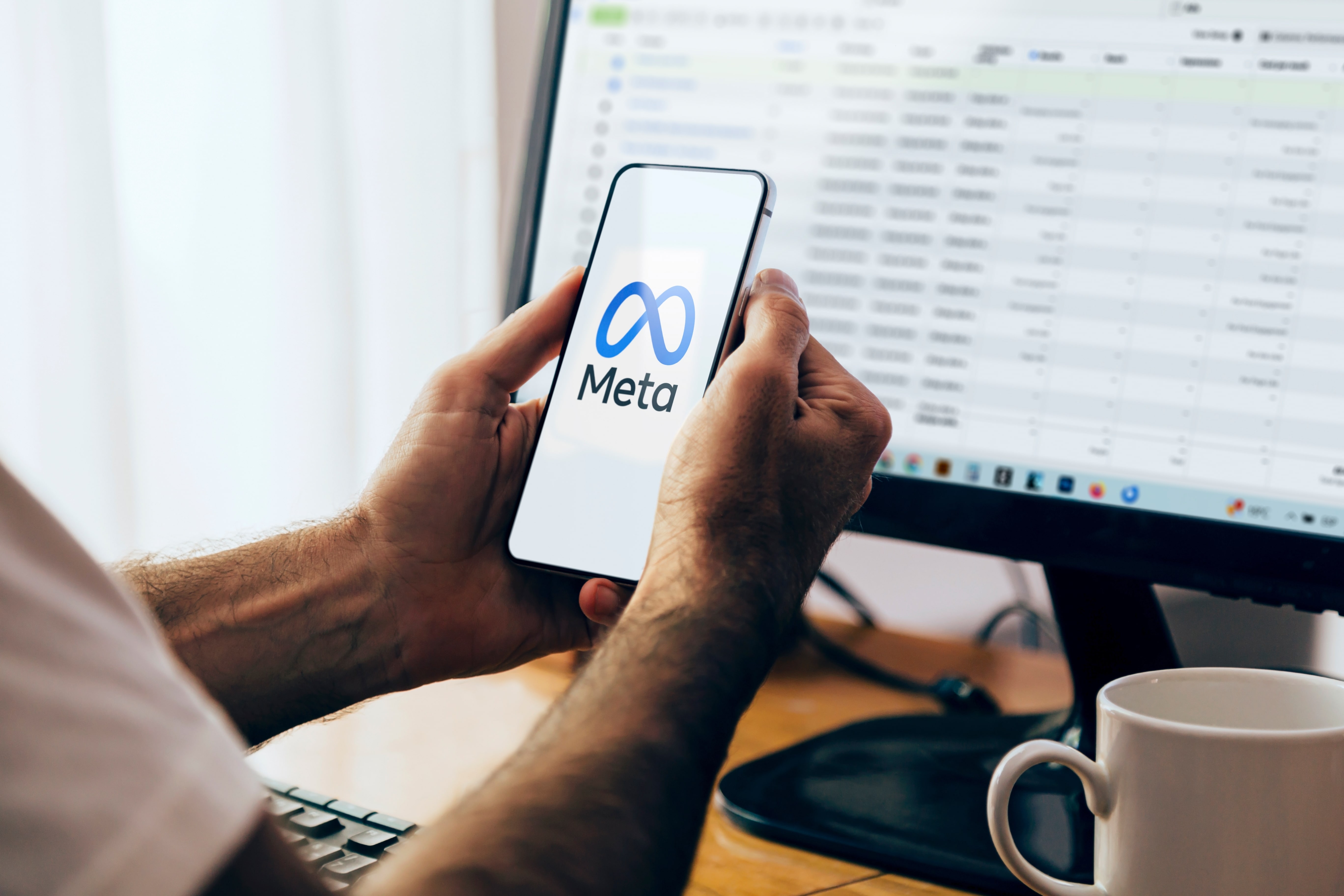Google Business Profile (GBP) (formerly Google My Business) is a free tool from Google that lets cannabis dispensaries manage how their business appears across Google Search and Maps.
Your GBP listing acts as a digital storefront, displaying essential information like your name, address, phone number (NAP), hours, reviews, photos, and services—helping customers decide whether to visit your dispensary before they even click your website.
A well-optimized GBP is critical for local visibility, especially in competitive markets. Its signals directly impact your local SEO performance, making it one of the first things dispensaries should optimize when building a local search strategy.

How to Set Up and Claim Ownership of Google Business Profile
To get started, you need to claim ownership of your Google Business Profile and verify your listing. Here’s how:
1. Go to [google.com/business]
2. Log in with your Google account.
3. Search for your dispensary — if it exists, claim it. If not, click “Add your business.”
4. Enter your business details: name, address, category, and contact.
5. Choose how you want to verify — typically, Google will mail you a postcard with a unique code.
6. Enter the code to verify your listing.
If you’ve moved locations or see a duplicate listing, use the “Suggest an edit” or “Remove this listing” options to request cleanup.
Google Business Profile Optimization Checklist
Once your Google Business Profile (GBP) is live, proper optimization is essential for ranking in the local map pack and building trust with potential customers. Here’s a comprehensive checklist to ensure your profile is fully optimized and aligned with cannabis dispensary SEO best practices:
- Confirm That Your Dispensary Has a Google Business Profile Listing: Do a Google search to see if your dispensary is listed and if you’ve claimed it. If a listing doesn’t exist or if it’s not claimed, all you need to do is log in to Google Business Profile and create or claim it. You’ll need a Gmail address to log in. If someone else has claimed it, you’ll need to submit a Request of Ownership from Google.
- Verify Your Cannabis Dispensary GBP Listing: Google requires you to verify your listing. The three primary ways to do this are email, phone, or postcard. Verifying by postcard is the most cumbersome way. If you choose phone verification, just make sure you’re there to answer the call.
- Complete Basic Business Information: Complete your basic business information and make sure it’s accurate and consistent across the web. Use the exact same business name that appears on your dispensary storefront, marketing collateral, and website. Use your local business phone number that a real person will pick up. You’ll want to choose the most relevant business categories (e.g., “cannabis store”). Don’t select irrelevant categories or try to spam your GMB listing with cities you’re not located in. Finally, make sure your business hours are correct, including holiday hours.
- Create a Compelling Description for Your Dispensary: Keep it brief, but engaging. Focus on what makes your dispensary unique. You’re allowed up to 750 characters. Google will use the first 244 words in your description for the snippet.
- Add High-Quality Visual Imagery: Google (and consumers) love visual content. Upload not only your logo, but pictures of your dispensary (interior and exterior), photos of your team (preferably candid pictures of them engaging with customers), and creative videos (like educational or how-to videos). Make sure only to use high-quality photos. If you really want to stand out, include a virtual tour of your dispensary.
- Collect Authentic Customer Reviews: There’s no higher ROI activity than getting high-rating reviews. Nowadays, nearly every consumer reads online reviews. Reviews and word of mouth can make or break your business. With 85 percent of consumers trusting online reviews as much as personal recommendations, you want to make sure your consistently getting positive reviews. Also, make sure to respond to both positive and negative reviews. Google likes to see proactive businesses, and your responsiveness will be rewarded.
Keep in mind that unlike Yelp, Google encourages businesses to ask customers for reviews. However, you’re not allowed to offer incentives to leave reviews. Offering incentives is not only against Google’s terms, it’s actually illegal.
To learn more about Local SEO and how to make the most of your GMB, check out these resources:
- Why Local SEO Matters For Your Dispensary
- Local SEO for Dispensaries: 3 Things You Can't Ignore
- Why You Should Do a Local SEO Audit Right Now (and How)
- 18 Link Building Strategies to Boost Cannabis Dispensary Local SEO
A complete profile builds trust and improves your chances of appearing in the local map pack.
Leverage Google Business Profile Insights to Improve Dispensary Visibility and Performance
Track performance using GBP’s built-in Insights dashboard. It shows:
- How people find you: via Search or Maps
- What actions they take: calls, website visits, direction requests
- Where they’re located: based on direction request data
- When they’re most active: by day and hour
Use this data to fine-tune your profile, update peak-hour staffing, and optimize your marketing based on local demand.
How to Grow Your Google Business Profile Audience and Improve Engagement
A fully optimized Google Business Profile (GBP) is only the first step. To grow your audience and improve engagement, you need to consistently attract views, drive actions, and build trust with both Google and your customers.
Ways to Grow Your GBP Audience:
- Enable and monitor GBP Insights to identify what searches lead customers to your profile. Use this data to refine keywords in your business description and services.
- Encourage customer interactions by regularly asking for reviews and responding promptly.
- Keep your NAP (Name, Address, Phone) and hours updated—Google rewards freshness with better visibility.
- Add high-quality, keyword-relevant photos of your store, products, and team. Businesses with photos get 42% more requests for directions.
- Create location-based content (e.g., “Cannabis Dispensary Near Santa Rosa”) that aligns with common local searches.
How to Improve Google Business Profile Engagement:
- Respond to every review, positive or negative, to show you're active and trustworthy.
Use the Q&A section to answer common customer questions. You can even seed your own FAQs with common queries.
Track actions in the Insights dashboard, like calls, direction requests, and website clicks, then optimize content to improve underperforming areas.
Use UTM codes in your website links to track what traffic comes from GBP specifically.
Engagement signals—like reviews, photos, updates, and responsiveness—are among the strongest cannabis dispensary local SEO ranking factors. By actively managing your profile, you not only increase visibility but also turn viewers into real-life customers.
How to Spot and Handle GBP Spam on Your Dispensary’s Profile
Spam on your Google Business Profile (GBP) can mislead customers, clutter your listing, and hurt your dispensary’s SEO. Google ranks businesses partially based on review activity, so fake or malicious content can push your profile lower in search results. In fact, 77% of businesses believe spam has negatively impacted their rankings.
According to a recent survey, 46% of users familiar with Google Business Profile report seeing spam “very often” or “often.” With local SEO more important than ever, managing spam is a critical part of protecting your brand’s visibility.
How to Report GBP Spam
Google has streamlined the spam reporting process. Instead of relying on community forums, you can now use the official GBP spam report form. To submit:
- Provide a direct link to the spam content.
- Include supporting evidence, like screenshots or additional links.
- Be specific about the violation (e.g., fake reviews, keyword stuffing, duplicate listings).
Google will review your report, but resolution may take several days—and not all submissions are approved.
Pro Tips for Managing Spam and Boosting Engagement
- Proactively request reviews from satisfied customers using QR codes, email follow-ups, or printed prompts.
- Respond to every review, good or bad. Google rewards active, responsive businesses.
- Engage constructively with negative feedback—it demonstrates transparency and builds trust.
- Monitor your listing regularly for suspicious activity, duplicate locations, or misleading content.
Spam may be frustrating, but handling it head-on not only protects your brand—it strengthens your local SEO.
What Is the Google Maps ‘Follow’ Button and How Should Dispensaries Use It?
Google Maps is an essential channel for local marketing vis-à-vis Google Business Profile (GBP). Google's addition of a “Follow” button—a popular and ubiquitous feature across peer-to-peer social media channels—provides cannabis dispensary marketers another way to engage customers. Engagement is robust because it’s proactive, not passive. It allows you to develop one-to-one relationships more effectively with your customers (or potential customers).
Once a user decides to “follow” your dispensary, Google will automatically deliver updates from you directly to their “For You” tab. The “For You” tab is strategically located where users can see recommendations curated according to their preferences.
Until now, your customers had to try to browse your dispensary’s GBP posts on your Google Maps listing or Knowledge Panel. Few users took the time to do this. Now, they don’t have to. They can see every post from businesses they follow in a single location rather than having to visit multiple locations.
“And for those of you who want to know about all the new places opening around town, you’ll start seeing profiles for places before they even open on Google Maps for Android and mobile search,” writes Paul Cole, product manager for Google Maps. “Just look for the opening date in orange.”
Key Points: Pros
- Google’s new Google Maps-integrated ‘Follow’ button provides a new engagement opportunity for cannabis marketers by allowing cannabis businesses to share updates and news via their Google Business Profile posts.
- The new feature not only renews focus on the importance of GBP, but its introduction also boosts the value of GBP posts.
Key Points: Cons
- To fully exploit this new feature, your marketing team must ensure they don’t neglect GBP posts. This may require more effort, but it will be well worth it for savvy marketers who commit to it.
- The ‘Follow’ button is only available on Android Google Maps. iOS should be available soon, but Google hasn’t announced a date yet.
Google also announced that new businesses, including new dispensary locations, can list their business profiles on Google Maps up to three months before the launch date.
While this feature will not (by itself) transform your business, it’s undoubtedly an excellent new opportunity for savvy cannabis marketers to gain an edge on their less-savvy competition.
Make Your Google Business Profile a Local SEO Powerhouse
Optimizing your Google Business Profile (GBP) is no longer optional—it’s essential for cannabis dispensaries looking to stand out in local search. A well-managed GBP helps customers find your store, learn about your offerings, read reviews, and engage directly from the search results page. Whether you operate a single storefront or manage multiple locations as an MSO, investing in your GBP is one of the most impactful actions to boost your cannabis dispensary SEO.
Pair it with effective link-building strategies—like getting listed on cannabis directories, earning local backlinks, and collaborating with community partners—to boost your local SEO even further.
Need help getting started? Book a consultation with our team and we’ll help you optimize your GBP and build a winning local SEO strategy.
.svg)









